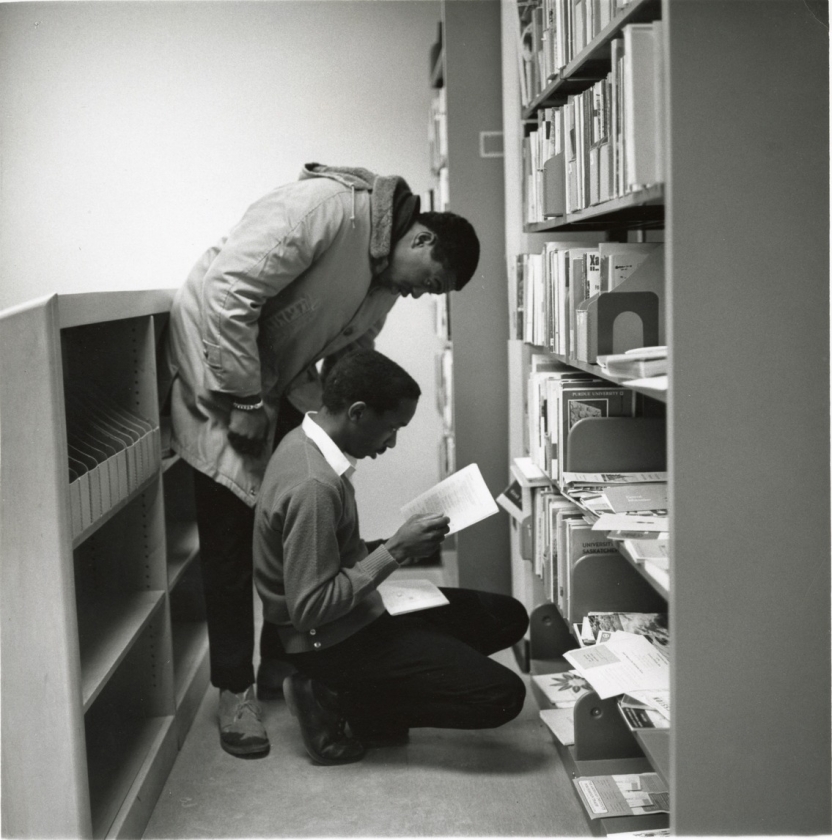Reparative description update and new images available online!

Special Collections continues to evaluate our legacy finding aids and descriptions with an eye to reduce harm and change out-of-date language. In the course of this work, we have changed the titles of folders housing archival photographs and have provided content warnings on materials that might cause harm to our students and researchers.
When looking through a box of archival photographs taken by the Middlebury College Publications Office (now the Office of Communications and Marketing), we came across a folder labeled “Blacks at Middlebury.” The folder contained photographs of Black students at Middlebury College, posing for portraits and participating in classes and activities on campus.
We think these images provide wonderful — and much needed — insight into the experiences of students of color at Middlebury. But, we were uncomfortable with the folder title, which we did not feel used the people-centered language we strive for in our descriptions. And, we know that adjectives should not be used as nouns.

Using the reparative description guide, “Archives for Black Lives” (2020) for reference, we decided to change the folder title to “Black students at Middlebury” and to make a note in the finding aid alerting researchers to this change. This change both emphasizes the humanity of the students in the photographs and ensures that researchers will still be able to find Black subjects in our collections.
Including notes about changes we make to descriptions helps us to maintain transparency in our work.
Other steps we have taken include adding content warnings to our digitized materials and finding aids. We recently digitized our archival vinyl collection. One of our recordings features Middlebury College President John Martin Thomas singing a song called “Old Black Joe.” “Old Black Joe” was written by Stephen Foster, a white composer of parlor and minstrel music (commonly performed by white actors wearing blackface). Its lyrics are written from the perspective of an enslaved or formerly enslaved Black man. John Martin Thomas, the singer of the song in our recording, was a white man. We included this information in a content warning note to alert researchers to what they are about to hear, should they choose to listen.
We recognize that language and best practices are ever-evolving. You can make a suggestion or provide feedback by emailing us at specialcollections@middlebury.edu. You can also use the “Suggest a Correction” button on our finding aids at go/aspace. (For more information about our feedback button, see our post from earlier this year)
Want to learn more about Special Collections? Follow us on Instagram.

